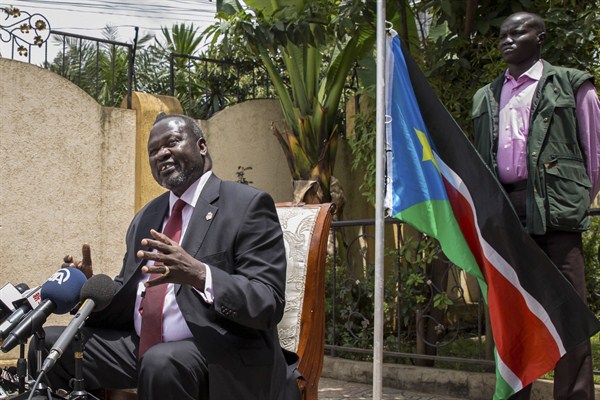When South Sudan’s president, Salva Kiir, inked a new agreement in late August to end his country’s 20-month conflict, he seemed to be following a pattern the two warring sides had set in reaching or recommitting to an earlier deal to cease hostilities: Temporarily stave off international and regional pressure by signing, then allow it to collapse under the weight of continued fighting. True to form, clashes have continued into September, with each side accusing the other of attacks.
So far, however, neither camp has yet declared the latest deal a failure. And the leaders, though critical of some elements of the agreement, are still following through on their obligations, signaling that this time might be different.
South Sudan has been embroiled in a civil conflict since mid-December 2013, when fighting broke out in a military barracks in the capital, Juba, and then spread rapidly throughout the city. Kiir charged his former deputy, Riek Machar, with attempting a coup. The accusation was the culmination of months of growing tensions between the two. Machar had been angling for Kiir’s job, which led to his firing in July 2013. In the days before the barracks battle, Machar had accused his former boss of possessing “dictatorial tendencies.”

